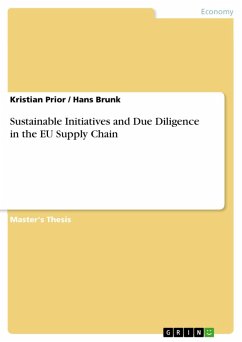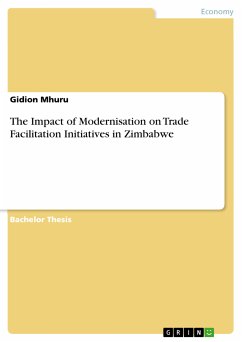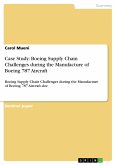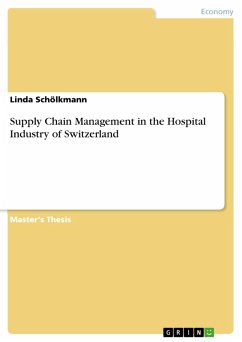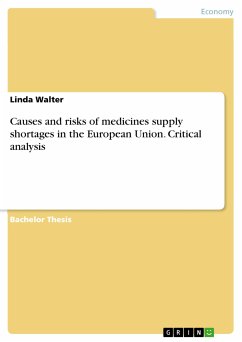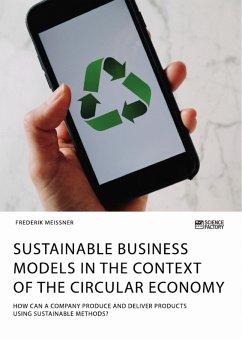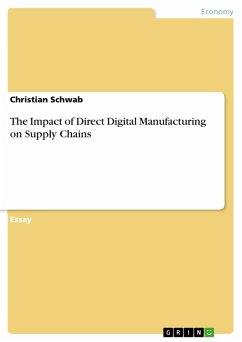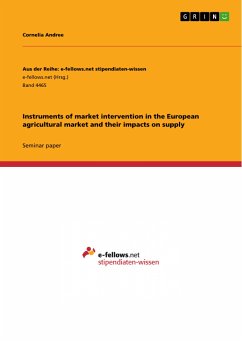Master's Thesis from the year 2022 in the subject Business economics - Supply, Production, Logistics, grade: A, Copenhagen Business School, language: English, abstract: Using primary data gathered from both virtual semi-structured interviews and a quantitative survey, a triangular approach was used to investigate how firms work with different initiatives regarding sustainability in supply chains - both in terms of environmental and social sustainability. Furthermore, reactions to recently enacted and upcoming supply chain legislation was documented. The quantitative data was mainly used to supplement findings from the qualitative interviews. Selected respondents were featured through mini-cases that highlighted firm sustainability initiatives pertaining to supply chain management. From the analyzed data, four distinct propositions-each with circumstantial sub-propositions- were developed that highlight four interlinked themes concerning sustainability and supply chain management: leverage, information exchange, visibility, and supplier upgrading. The propositions can be used by business managers as a source of direction while designing, implementing, and managing sustainability initiatives in their respective supply chains in response to increasing due diligence requirements. Furthermore, legislators may review respondent concerns as well as the developed propositions to address externalities stemming from global value chains and update the legislation accordingly. Numerous government bodies have begun enacting increased due diligence requirements on business supply chains to curb harmful externalities that affect global sustainability initiatives. At the international level, the EU has recently proposed mandatory human rights due diligence (MHRDD) for global value chains, which is a mandated form of corporate social responsibility (CSR). Traditionally, due diligence and CSR have been voluntary tools to appease stakeholders. However, these voluntary approaches have been unsuccessful at curbing unsustainable business practices. Research combining sustainability and supply chain management has been increasing in recent years, as well as evolving to include themes found outside management research. Furthermore, the research environment has identified tools that explain how to manage global value chains in a sustainable way, but hasn't specifically addressed the changing legal environment, nor how to manage greater due diligence requirements. Overall, our findings contribute to the growing field of sustainable supply chain management and may easily be tested and expanded upon by future research.
Dieser Download kann aus rechtlichen Gründen nur mit Rechnungsadresse in A, B, BG, CY, CZ, D, DK, EW, E, FIN, F, GR, HR, H, IRL, I, LT, L, LR, M, NL, PL, P, R, S, SLO, SK ausgeliefert werden.

